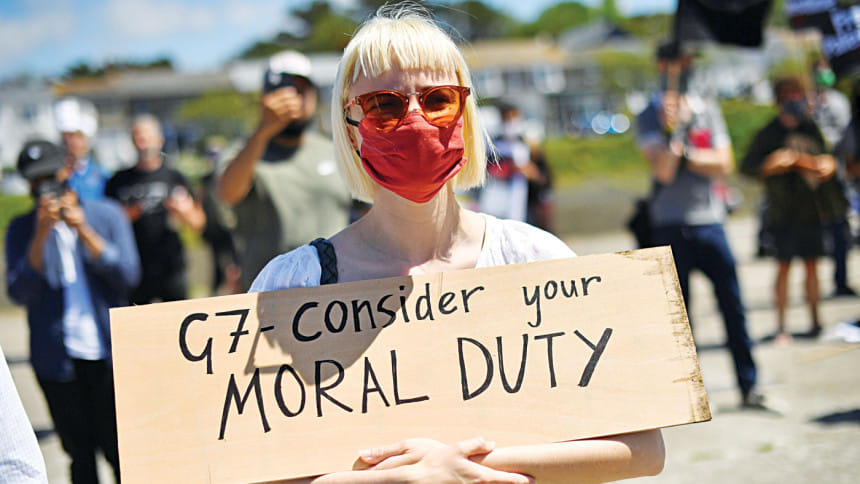G7 outlines pandemic pact

Britain yesterday acclaimed a "historic" action plan by G7 nations to prevent future pandemics, as the elite group showcased US-led unity against China and Russia at its first in-person summit in almost two years.
The "Carbis Bay Declaration" -- named after the seaside town in Cornwall, southwest England, where US President Joe Biden and other leaders are meeting this weekend -- comprises a series of health policy commitments.
The collective steps include slashing the time taken to develop and license vaccines, treatments and diagnostics for any future disease to under 100 days, while reinforcing global surveillance networks.
It will be formally published today, alongside the G7's final communique.
"The #CarbisBayDeclaration marks a proud and historic moment for us all," British Prime Minister Boris Johnson said on Twitter, as he chaired the second day of the three-day summit.
"Under this agreement, the world's leading democracies will commit to preventing a global pandemic from ever happening again, ensuring the devastation caused by Covid-19 is never repeated," he said.
World Health Organization chief Tedros Adhanom Ghebreyesus, criticised in some quarters for being too accommodating towards China where the coronavirus originated, welcomed the health pact.
And he said the UN agency would examine a British proposal to create a "Global Pandemic Radar" to send early warnings of future outbreaks.
"The world needs a stronger global surveillance system to detect new epidemic and pandemic risks," he said.
However, aid charity Oxfam said the declaration "does nothing to address the fundamental problems that are preventing vaccines being accessible to the vast majority of humanity".
The G7 -- Britain, Canada, France, Germany, Italy, Japan and the United States -- are largely focussed on "building back better" after Covid-19 wrecked economies and claimed millions of lives around the world.
They are expected to pledge to donate one billion vaccine doses to poor countries this year and next -- although campaigners say the rollout is much too slow to end the crisis sooner.
The leaders are also set to issue new commitments on climate change, including financial aid for the developing world, in the buildup to the UN's COP26 environmental summit in Scotland in November.

 For all latest news, follow The Daily Star's Google News channel.
For all latest news, follow The Daily Star's Google News channel. 



Comments